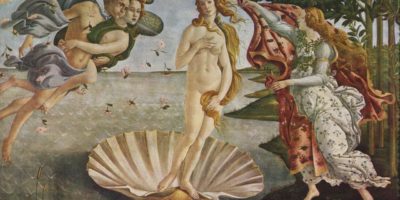A Brief Guide to Festivals and National Holidays in Thailand
Along with all of the colourful and chaotic sights, tempting cuisine, and tropical backdrops, Thailand also has many festivals throughout the year to enjoy.
Anyone who has ever visited Thailand at any point has likely been caught up in at least one of these annual displays of culture and ceremony, and in terms of local Thai culture, being aware of holiday and festival dates can help to enhance a Thailand experience significantly.
This may be due n no small part to the fact that it may even save you a few potential headaches or setbacks with unexpected traffic (and people) congestion, closed venues, or even a ban on alcohol sales! Indeed a few of these dates are well worth knowing about before embarking on any Thai holiday trips.
There are also numerous national holidays throughout the year in Thailand, some of which are related to special occasions or days relevant to Buddhism, past and present royalty, and other significant days considered integral in some way to the history and culture of the nation.
In this article then we have included a few tips for each particular Thai festival and holiday, along with the month and day that it takes place. Thailand has many local and regional cultural festivities, but this guide is more geared towards the national ones in the hope that it helps with your Thai holiday travel plans.
Festivals
The festivals in Thailand usually span a few days, although there are exceptions. The dates on some of them are rigidly held to on an annual basis, while the particular days and dates for other festivals may vary according to factors such as the waxing and waning of the moon, which is common to Chinese-influenced festivals.
1. Chinese New Year (Jan-Feb)
Usually held in January or February, this is one of those several-day-long affairs, the exact dates of which are typically affected by astrological factors or otherwise.
As many Thai people are of Chinese descent, especially in Bangkok, Chinese New Year is a colourful, exotic and ubiquitous affair, and is one of the most significant festivals in Thailand.
It is exemplified by the tirades of red that can be seen on display way more than is commonly seen, and the colour plays a key role in the belief systems of the Chinese, who consider it to symbolise good fortune and merit.
2. Songkran holiday (April 13-15)
Undoubtedly the most popular holiday time in Thailand, Songkran is the Thai New Year festival, and takes place in annually in April.
The 13th April is actually classified as the Thai New Year’s Day, and the Songkran festival is celebrated throughout the nation for at least the two days following the 13th. It is basically a 3-day holiday and festival combined, although if a weekend features anytime around the holiday dates it can easily become a 5-day affair.
The Songkran Festival also happens to feature legions of people throwing water at each other, which could be delivered via anything from a small ceremonial cup to full-on water cannon-style battles. This is something that has gradually got more extreme through the involvement of teens who are often drunk and admittedly is not for everyone.
April happens to be the hottest month of the year in Thailand as it turns out — another reason for the festival being so well-loved (although mainly by younger generations who have hijacked it from the conservative elderly.
Worth a try if you fancy a bit of fun but come prepared!!
3. Loy Krathong Festival (22nd November)
Without wishing to sound too generic, it is probably fair to say that Loy Krathong is the second most well-known Thai Festival and National Holidays after the new year and Songkran Festival.
Loy translates as to float while ‘ krathong’ refers to a small float or raft made largely of banana leaves.
This kratong is then floated on the water, usually with candles if the night has already closed in, and any body of water, small or vast is a sight to behold once there are hundreds of kratongs floating away to ask the water goddess for forgiveness and also pay homage and gratitude.
Some elements of the Loi Krathong festival are related to Theravada Buddhist lore, although it has been suggested that Thailand has its own version of a Buddhism which is quite largely steeped in myth and supernatural legend, as is found in much of SE Asia.
4. Vegetarian Festival
Not even everyone in Thailand knows this, but the vegetarian festival, which occurs annually in Thailand between 16th and 25th October, is actually known as the ‘Nine Emperor Gods Festival.
This is another festival of Chinese origin, and is most prominent in Phuket (which has a large immigrant Chinese population) where some of the street parades verge on the gory, as tattooed young men pierce their flesh with all manner of implements, thought to be some kind of penance to the gods.
You won’t find these types of display in Bangkok though, only the yellow flag with the small red Chinese symbol on it which signifies ‘jae’ or vegetarian and vegan.
5. Yi Peng Lantern Festival
Known otherwise as the Chiang Mai Sky Lantern Festival, this is a Northern Thai festival celebrated at the same time as Loy Krathong.
The numerous rice paper lanterns (khom loi) are sent skyward and make for a compelling sight, although the government has started applying some restriction as the lanterns can sometimes be dangerous.
This is another Thai festival rooted in Buddhism, with many holding the belief that by releasing the lantern, they are also releasing any potential misfortune that they may be holding on to.
National Holidays
National holidays in Thailand are common, and are usually related to either significant Buddhist and royal days or points in history, with some others being related to workers and the constitution.
Buddhist-related holidays
Makha Bucha Day is held in February or March and is one of Thailand’s main Buddhist holidays. This day commemorates the coming together of 1,250 enlightened disciples of Buddha to listen to his teachings. All of the monks present at this gathering were ordained by the Buddha himself, and today Buddhists go to make merit and join candlelight processions for the festival known as “Wian Tian”.
Visakha Bucha Day is another notable day on the Buddhist calender. It occurs in May or June and represents the birth, enlightenment and passing into Nirvana of the Buddha. As with the majority of Buddhist holidays and festivals in Thailand, there is much Buddhist ceremony and ritual at the temples, and as with all the other Buddhist-related events of import, the sale of alcohol is prohibited.
Asahna Bucha Day (also known as Dharma Day) is held in July and commemorates the Buddha’s first sermon to his first five disciples. Dharma is a Buddhist term that refers to the teachings of the Buddha. This Thai festival is occurs on the first full moon of the eighth lunar month.
Royalty-related national Holidays
Chakri Day is on April 6 which was the date in 1782 when King Rama I founded the Chakri Dynasty, Thailand’s current ruling dynasty.
King Rama X’s birthday is celebrated on 28th July, which is also the birthday of Thailand’s present king.
Mother’s Day is on 12th August which is the same day as the birthday of Queen Sirikit.
There is also a recent addition to the Thai National Holiday rostrum in the Commemoration of the Passing of King Rama IX on 13th October.
Chulalongkorn Day – This day is held on 23rd October in remembrance of King Rama V.
Other National Holidays
New Year’s Day (another one – this time to mark the year’s end) occurs on 1st January and is a popular holiday in Thailand when many people take extended time off travelling or catching up with family.
Children’s Day is held on the second Saturday of January, and is a chance for children to have fun and supposedly create awareness regarding their role in the development of the country. There are plenty of Children’s Day events across the country, so if you don’t mind the crowds, you can step out and watch the kids have some fun.
National Labour Day is heralded as a national holiday on 1st May in Thailand, as is the case in some other countries.
One of the things that makes national holidays such as this one popular with civil servants and anyone with governmental-related work is that they are paid holidays. Unfortunately, however, many of the rest of the nation don’t see a bean for days such as this one so they either carry on working if they can, or lose a day’s money if they can’t. Which is one of the things that makes the long list of national holidays in Thailand somewhat unpopular with a section of society.
Planning a trip to Paris ? Get ready !
These are Amazon’s best-selling travel products that you may need for coming to Paris.
Bookstore
- The best travel book : Rick Steves – Paris 2023 – Learn more here
- Fodor’s Paris 2024 – Learn more here
Travel Gear
- Venture Pal Lightweight Backpack – Learn more here
- Samsonite Winfield 2 28″ Luggage – Learn more here
- Swig Savvy’s Stainless Steel Insulated Water Bottle – Learn more here
Check Amazon’s best-seller list for the most popular travel accessories. We sometimes read this list just to find out what new travel products people are buying.



















